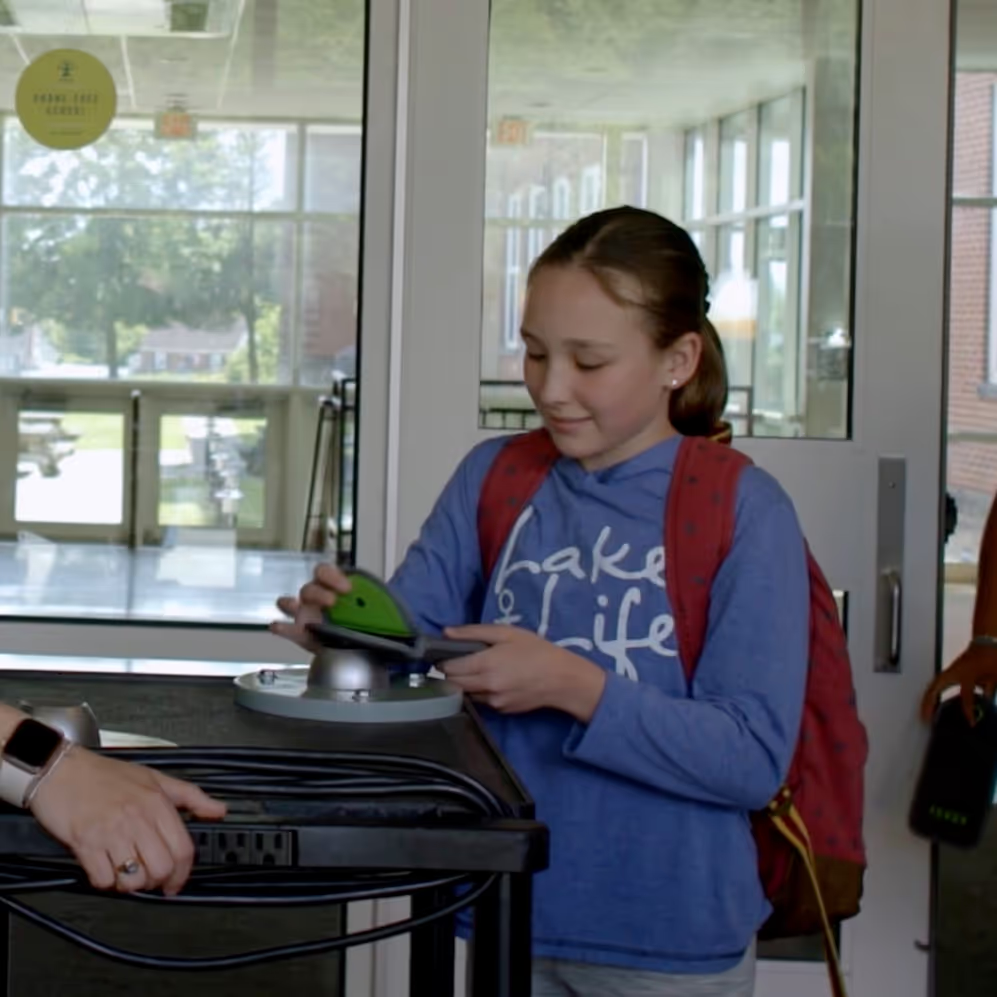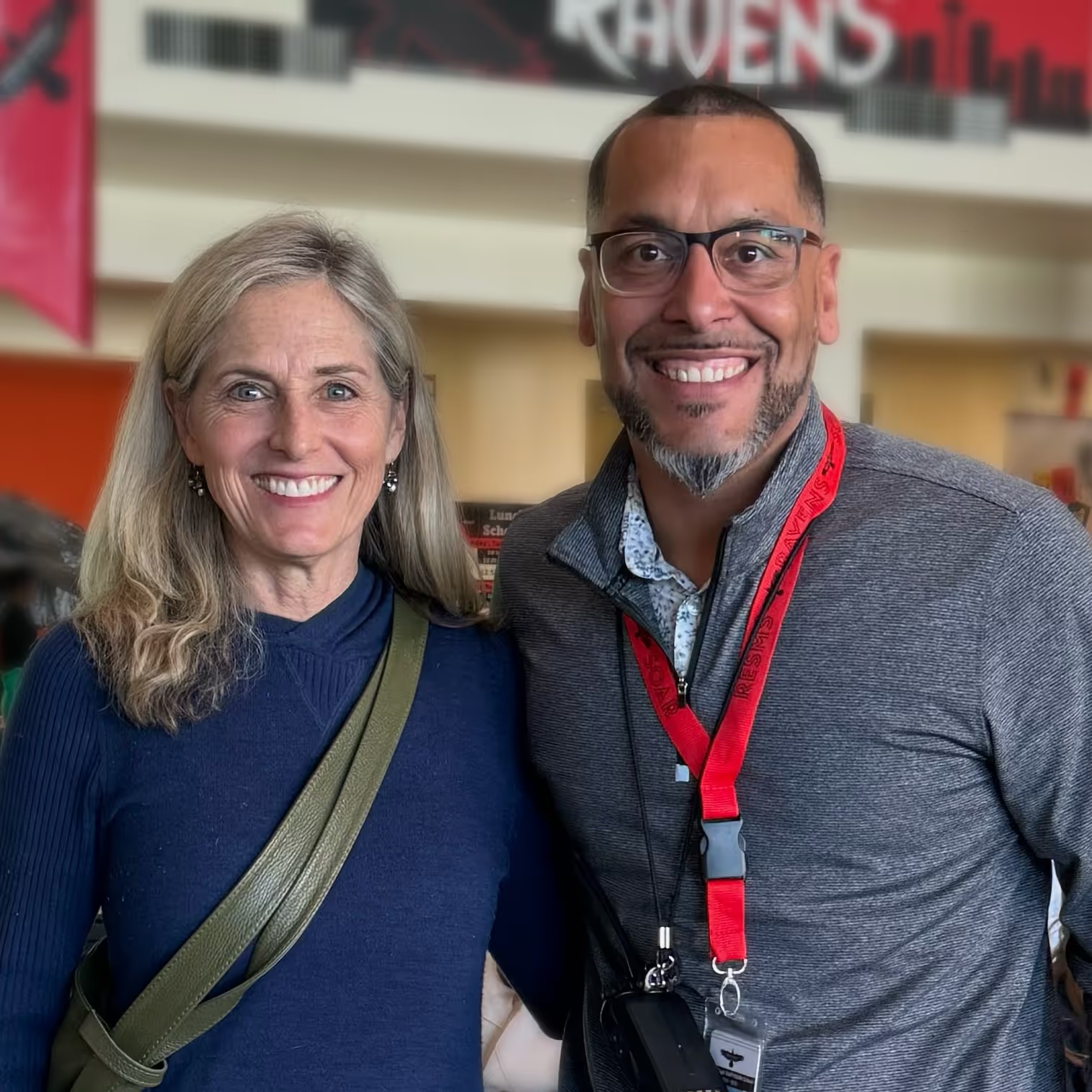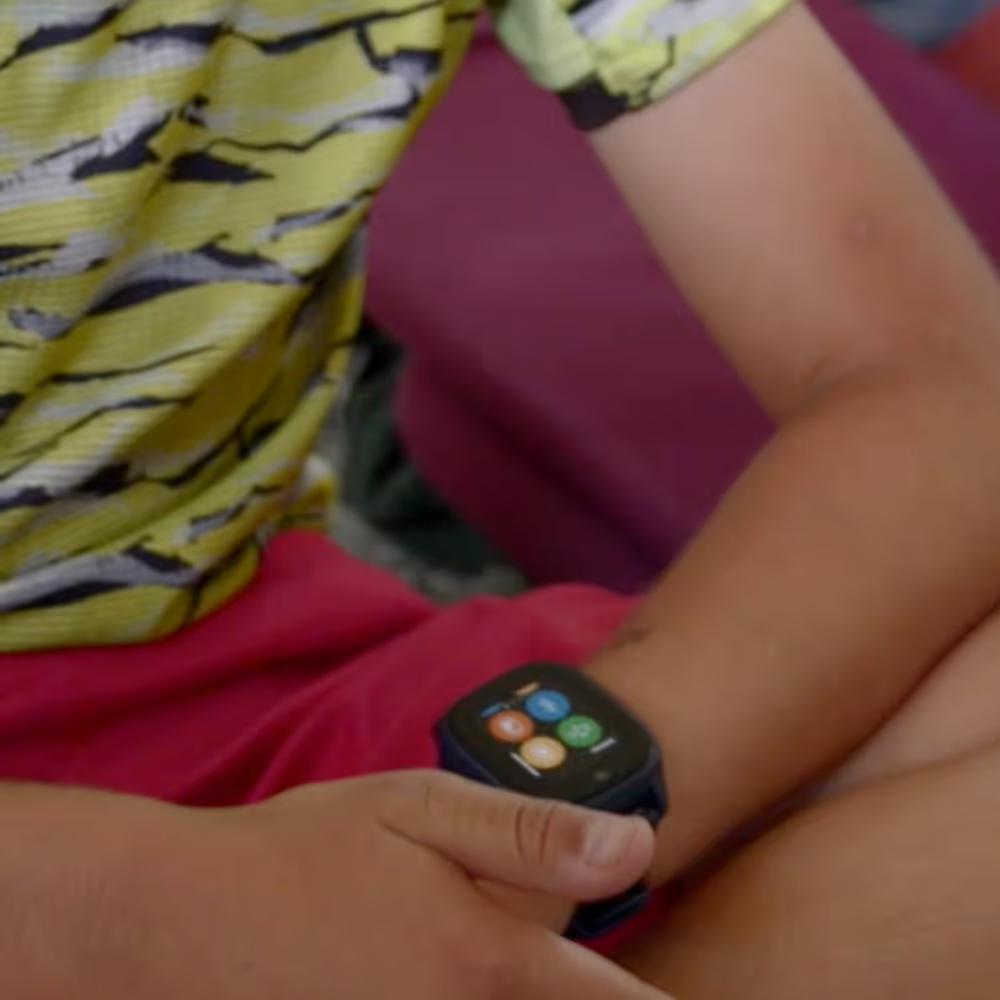


As I continue to hear from parents all over the country about their fears and frustrations about their childrens’ current school situation, I feel compelled to share some solutions.
First, consider employing this mental Jiu-Jitsu: Radical acceptance that school right now is different and, for some, not so great. It just is. Radical acceptance requires fully accepting the situation.
When I was going through a hard time, a therapist I saw taught me this term, and I was amazed at how helpful it could be. When I found myself spinning in fear and sadness, I would say to myself, “Radical Acceptance, this is just the way it is for right now.” This thought would immediately lower my emotional state from a 10 to a bearable four or so. Later, when my feelings re-plummeted, I would silently repeat, “Radical Acceptance, Radical Acceptance.”
Whenever I said this to myself, I noticed that I experienced waves of feelings of connectedness — connection to all people struggling. It sounds a woo-woo, I know, but somehow it helped comfort me and not feel so alone.
Radical Acceptance does not mean Radical Inertia. Not at all. We can radically accept that schools all over are challenged, AND we can continue to think creatively about the new learning opportunities that can happen in our homes right now.
I have been thinking a lot about ways we can supplement our children’s learning this spring. Here are ideas in the form of three “Home Mini-Courses” you might want to experiment with:
Set the stage by having your child brainstorm what policy-making they have done in their lives and probably didn’t even notice. Do they have a policy around wanting people to ask before they borrow their clothes? Do they have a personal policy that if a good friend contacts them, they will respond within a day, an hour, or even 10 seconds?!
And now, widening the lens to national policy issues, you might ask, what types of policies should be in place for Facebook, including its Instagram brand? For TikTok? And the list goes on. I will let you, “parent/teacher,” choose a specific topic to lead your seminar. After all, the more interested we are as the “teacher/sage,” the more fun the whole discussion will be.
Recently my son noted how few classes his college taught regarding policy and the tech industry even though his college has a big tech focus. This topic is a great area in which to engage our kids and get them thinking of ideas.
This one popped into my head because just this week, after way too long, I had a Zoom reunion with my two college roommates, both of whom were Human Biology majors. In the same week, my girlfriend of 30 years, a brain scientist, highly recommended the documentary Human Nature. I watched it with much delight with my daughter Tessa last night.
Human Nature explores the scientific revolution that has started with the advent of CRISPR. This film is appropriate for middle school age and up. Any age can see it, but many details will go over the younger ones’ heads — but it is still visually fascinating. This film includes a wonderful young boy who shares his experience with sickle cell disease. Consider watching the film in sections over a few nights and have talks about the topics in between.
In terms of human biology, Screenagers NEXT CHAPTER fits the bill perfectly as well. The film explores the emotional and social challenges our kids face in our digital age and how we can best support them in these times. Kids age 11 and up resonate so much with the film, and the discussions they dive into after seeing the film make it great for a Human Bio course.
You may also want to check out, No Impact Man, a film about a family trying to go a year in New York giving up electricity and much more to curb their environmental impact — extreme, but that is why it makes for good course material.
This weekend I updated my computer, and the first screen that appeared was a long list of recommended apps. What kinds of apps do our kids think need inventing or reworking?
This brain teaser requires them to put on their innovation, design, engineering, and user interface caps.
When seeing all these apps, I paid most attention to the school and student category. Not surprisingly, there are a host of new ones that help people learn to code. If your child is not the one percenter, who says, “Gee, I am so excited to get up early this morning and teach myself coding,” will they do 15 minutes with you once a week for a month? Just even talk about some of the names of the languages of coding. Any time we can get our kids to think about being a producer, not only a consumer of our tech revolution, their thinking gets expanded in meaningful ways.
I am jazzed to have discovered a learning app called Preply. The app connects people to native language tutors at very affordable prices. Learning languages is a great passion of mine, and over the years, I have learned to speak four aside from English. Now weekly, via Preply, I have a thirty-minute conversation with Anushree to keep up my Hindi (and since I do this via my phone, I go for a walk at the same time).
Maybe your child wants to try out a language tutor? If not, perhaps you do, and your child will hear you talking with your tutor. The funnier you sound, the better. My kids know I love making people laugh when I miss pronounce things or mess up on grammar.
My idea has nothing to do with tech. I would have hybrid classes of language and improv. That is because the key is feeling safe to all be silly together--it is about laughing with each other as we try to speak, mess up, and then try again. That requires a lot of psychological safety, and improv helps with that.
This hybrid would also foster what I believe is the best part of learning a language — learning to SPEAK it! (Traditional academia is weighted heavily on written grammar. When I can speak the language of my patients who do not speak English, it makes a world of difference.
Click here if you are interested in hosting an ONLINE screening for your community.
Click here if you want to attend an ONLINE screening.
Click here for information about Dr. Ruston’s new book, Parenting in the Screen Age
Subscribe to Dr. Ruston’s Screenagers Podcast.
Learn more about showing our movies in your school or community!
Join Screenagers filmmaker Delaney Ruston MD for our latest Podcast

Learn more about our Screen-Free Sleep campaign at the website!
Our movie made for parents and educators of younger kids
Learn more about showing our movies in your school or community!
Learn more about showing our movies in your school or community!
Join Screenagers filmmaker Delaney Ruston MD for our latest Podcast

Learn more about our Screen-Free Sleep campaign at the website!
Our movie made for parents and educators of younger kids
Join Screenagers filmmaker Delaney Ruston MD for our latest Podcast
As we’re about to celebrate 10 years of Screenagers, we want to hear what’s been most helpful and what you’d like to see next.
Please click here to share your thoughts with us in our community survey. It only takes 5–10 minutes, and everyone who completes it will be entered to win one of five $50 Amazon vouchers.
As I continue to hear from parents all over the country about their fears and frustrations about their childrens’ current school situation, I feel compelled to share some solutions.
First, consider employing this mental Jiu-Jitsu: Radical acceptance that school right now is different and, for some, not so great. It just is. Radical acceptance requires fully accepting the situation.
When I was going through a hard time, a therapist I saw taught me this term, and I was amazed at how helpful it could be. When I found myself spinning in fear and sadness, I would say to myself, “Radical Acceptance, this is just the way it is for right now.” This thought would immediately lower my emotional state from a 10 to a bearable four or so. Later, when my feelings re-plummeted, I would silently repeat, “Radical Acceptance, Radical Acceptance.”
Whenever I said this to myself, I noticed that I experienced waves of feelings of connectedness — connection to all people struggling. It sounds a woo-woo, I know, but somehow it helped comfort me and not feel so alone.
Radical Acceptance does not mean Radical Inertia. Not at all. We can radically accept that schools all over are challenged, AND we can continue to think creatively about the new learning opportunities that can happen in our homes right now.
I have been thinking a lot about ways we can supplement our children’s learning this spring. Here are ideas in the form of three “Home Mini-Courses” you might want to experiment with:
Set the stage by having your child brainstorm what policy-making they have done in their lives and probably didn’t even notice. Do they have a policy around wanting people to ask before they borrow their clothes? Do they have a personal policy that if a good friend contacts them, they will respond within a day, an hour, or even 10 seconds?!
And now, widening the lens to national policy issues, you might ask, what types of policies should be in place for Facebook, including its Instagram brand? For TikTok? And the list goes on. I will let you, “parent/teacher,” choose a specific topic to lead your seminar. After all, the more interested we are as the “teacher/sage,” the more fun the whole discussion will be.
Recently my son noted how few classes his college taught regarding policy and the tech industry even though his college has a big tech focus. This topic is a great area in which to engage our kids and get them thinking of ideas.
This one popped into my head because just this week, after way too long, I had a Zoom reunion with my two college roommates, both of whom were Human Biology majors. In the same week, my girlfriend of 30 years, a brain scientist, highly recommended the documentary Human Nature. I watched it with much delight with my daughter Tessa last night.
Human Nature explores the scientific revolution that has started with the advent of CRISPR. This film is appropriate for middle school age and up. Any age can see it, but many details will go over the younger ones’ heads — but it is still visually fascinating. This film includes a wonderful young boy who shares his experience with sickle cell disease. Consider watching the film in sections over a few nights and have talks about the topics in between.
In terms of human biology, Screenagers NEXT CHAPTER fits the bill perfectly as well. The film explores the emotional and social challenges our kids face in our digital age and how we can best support them in these times. Kids age 11 and up resonate so much with the film, and the discussions they dive into after seeing the film make it great for a Human Bio course.
You may also want to check out, No Impact Man, a film about a family trying to go a year in New York giving up electricity and much more to curb their environmental impact — extreme, but that is why it makes for good course material.
This weekend I updated my computer, and the first screen that appeared was a long list of recommended apps. What kinds of apps do our kids think need inventing or reworking?
This brain teaser requires them to put on their innovation, design, engineering, and user interface caps.
When seeing all these apps, I paid most attention to the school and student category. Not surprisingly, there are a host of new ones that help people learn to code. If your child is not the one percenter, who says, “Gee, I am so excited to get up early this morning and teach myself coding,” will they do 15 minutes with you once a week for a month? Just even talk about some of the names of the languages of coding. Any time we can get our kids to think about being a producer, not only a consumer of our tech revolution, their thinking gets expanded in meaningful ways.
I am jazzed to have discovered a learning app called Preply. The app connects people to native language tutors at very affordable prices. Learning languages is a great passion of mine, and over the years, I have learned to speak four aside from English. Now weekly, via Preply, I have a thirty-minute conversation with Anushree to keep up my Hindi (and since I do this via my phone, I go for a walk at the same time).
Maybe your child wants to try out a language tutor? If not, perhaps you do, and your child will hear you talking with your tutor. The funnier you sound, the better. My kids know I love making people laugh when I miss pronounce things or mess up on grammar.
My idea has nothing to do with tech. I would have hybrid classes of language and improv. That is because the key is feeling safe to all be silly together--it is about laughing with each other as we try to speak, mess up, and then try again. That requires a lot of psychological safety, and improv helps with that.
This hybrid would also foster what I believe is the best part of learning a language — learning to SPEAK it! (Traditional academia is weighted heavily on written grammar. When I can speak the language of my patients who do not speak English, it makes a world of difference.
Click here if you are interested in hosting an ONLINE screening for your community.
Click here if you want to attend an ONLINE screening.
Click here for information about Dr. Ruston’s new book, Parenting in the Screen Age
Subscribe to Dr. Ruston’s Screenagers Podcast.
Sign up here to receive the weekly Tech Talk Tuesdays newsletter from Screenagers filmmaker Delaney Ruston MD.
We respect your privacy.
As I continue to hear from parents all over the country about their fears and frustrations about their childrens’ current school situation, I feel compelled to share some solutions.
First, consider employing this mental Jiu-Jitsu: Radical acceptance that school right now is different and, for some, not so great. It just is. Radical acceptance requires fully accepting the situation.
When I was going through a hard time, a therapist I saw taught me this term, and I was amazed at how helpful it could be. When I found myself spinning in fear and sadness, I would say to myself, “Radical Acceptance, this is just the way it is for right now.” This thought would immediately lower my emotional state from a 10 to a bearable four or so. Later, when my feelings re-plummeted, I would silently repeat, “Radical Acceptance, Radical Acceptance.”
Whenever I said this to myself, I noticed that I experienced waves of feelings of connectedness — connection to all people struggling. It sounds a woo-woo, I know, but somehow it helped comfort me and not feel so alone.
Radical Acceptance does not mean Radical Inertia. Not at all. We can radically accept that schools all over are challenged, AND we can continue to think creatively about the new learning opportunities that can happen in our homes right now.
I have been thinking a lot about ways we can supplement our children’s learning this spring. Here are ideas in the form of three “Home Mini-Courses” you might want to experiment with:
Set the stage by having your child brainstorm what policy-making they have done in their lives and probably didn’t even notice. Do they have a policy around wanting people to ask before they borrow their clothes? Do they have a personal policy that if a good friend contacts them, they will respond within a day, an hour, or even 10 seconds?!
And now, widening the lens to national policy issues, you might ask, what types of policies should be in place for Facebook, including its Instagram brand? For TikTok? And the list goes on. I will let you, “parent/teacher,” choose a specific topic to lead your seminar. After all, the more interested we are as the “teacher/sage,” the more fun the whole discussion will be.
Recently my son noted how few classes his college taught regarding policy and the tech industry even though his college has a big tech focus. This topic is a great area in which to engage our kids and get them thinking of ideas.
This one popped into my head because just this week, after way too long, I had a Zoom reunion with my two college roommates, both of whom were Human Biology majors. In the same week, my girlfriend of 30 years, a brain scientist, highly recommended the documentary Human Nature. I watched it with much delight with my daughter Tessa last night.
Human Nature explores the scientific revolution that has started with the advent of CRISPR. This film is appropriate for middle school age and up. Any age can see it, but many details will go over the younger ones’ heads — but it is still visually fascinating. This film includes a wonderful young boy who shares his experience with sickle cell disease. Consider watching the film in sections over a few nights and have talks about the topics in between.
In terms of human biology, Screenagers NEXT CHAPTER fits the bill perfectly as well. The film explores the emotional and social challenges our kids face in our digital age and how we can best support them in these times. Kids age 11 and up resonate so much with the film, and the discussions they dive into after seeing the film make it great for a Human Bio course.
You may also want to check out, No Impact Man, a film about a family trying to go a year in New York giving up electricity and much more to curb their environmental impact — extreme, but that is why it makes for good course material.
This weekend I updated my computer, and the first screen that appeared was a long list of recommended apps. What kinds of apps do our kids think need inventing or reworking?
This brain teaser requires them to put on their innovation, design, engineering, and user interface caps.
When seeing all these apps, I paid most attention to the school and student category. Not surprisingly, there are a host of new ones that help people learn to code. If your child is not the one percenter, who says, “Gee, I am so excited to get up early this morning and teach myself coding,” will they do 15 minutes with you once a week for a month? Just even talk about some of the names of the languages of coding. Any time we can get our kids to think about being a producer, not only a consumer of our tech revolution, their thinking gets expanded in meaningful ways.
I am jazzed to have discovered a learning app called Preply. The app connects people to native language tutors at very affordable prices. Learning languages is a great passion of mine, and over the years, I have learned to speak four aside from English. Now weekly, via Preply, I have a thirty-minute conversation with Anushree to keep up my Hindi (and since I do this via my phone, I go for a walk at the same time).
Maybe your child wants to try out a language tutor? If not, perhaps you do, and your child will hear you talking with your tutor. The funnier you sound, the better. My kids know I love making people laugh when I miss pronounce things or mess up on grammar.
My idea has nothing to do with tech. I would have hybrid classes of language and improv. That is because the key is feeling safe to all be silly together--it is about laughing with each other as we try to speak, mess up, and then try again. That requires a lot of psychological safety, and improv helps with that.
This hybrid would also foster what I believe is the best part of learning a language — learning to SPEAK it! (Traditional academia is weighted heavily on written grammar. When I can speak the language of my patients who do not speak English, it makes a world of difference.
Click here if you are interested in hosting an ONLINE screening for your community.
Click here if you want to attend an ONLINE screening.
Click here for information about Dr. Ruston’s new book, Parenting in the Screen Age
Subscribe to Dr. Ruston’s Screenagers Podcast.

This year, millions of students are experiencing a major shift: school days without phones, smartwatches, or other personal devices. Today we explore the wins, hurdles, and solutions helping schools succeed. We also share our resources that you can use to support technology policy changes in your schools.
READ MORE >
I recently sat down with middle school principal Zach at his school in Washington State. We talked about the challenges Zach and his team faced in his early years as principal when students used phones during school, and how he brought about a powerful transformation by having phones and smartwatches put away in locked pouches for the whole school day. In today’s blog, to raise awareness of the challenges, I share five real examples from Zach of the troubling ways students use phones at school to be unkind.
READ MORE >
It is with great pleasure that I share with you today a piece that Lisa Tabb and I did for Jonathan Haidt's (Author of The Anxious Generation) and researcher Zack Rausch's Substack blog — After Babel. In it, we discuss the rise in use of smartwatches in elementary schools and the problems they pose. There is a real cost to arming (pun intended) our kids with these devices and sending them to school. Now is the time to stop and fully address this topic and ensure that schools become smartwatch and phone-free.
READ MORE >for more like this, DR. DELANEY RUSTON'S NEW BOOK, PARENTING IN THE SCREEN AGE, IS THE DEFINITIVE GUIDE FOR TODAY’S PARENTS. WITH INSIGHTS ON SCREEN TIME FROM RESEARCHERS, INPUT FROM KIDS & TEENS, THIS BOOK IS PACKED WITH SOLUTIONS FOR HOW TO START AND SUSTAIN PRODUCTIVE FAMILY TALKS ABOUT TECHNOLOGY AND IT’S IMPACT ON OUR MENTAL WELLBEING.
